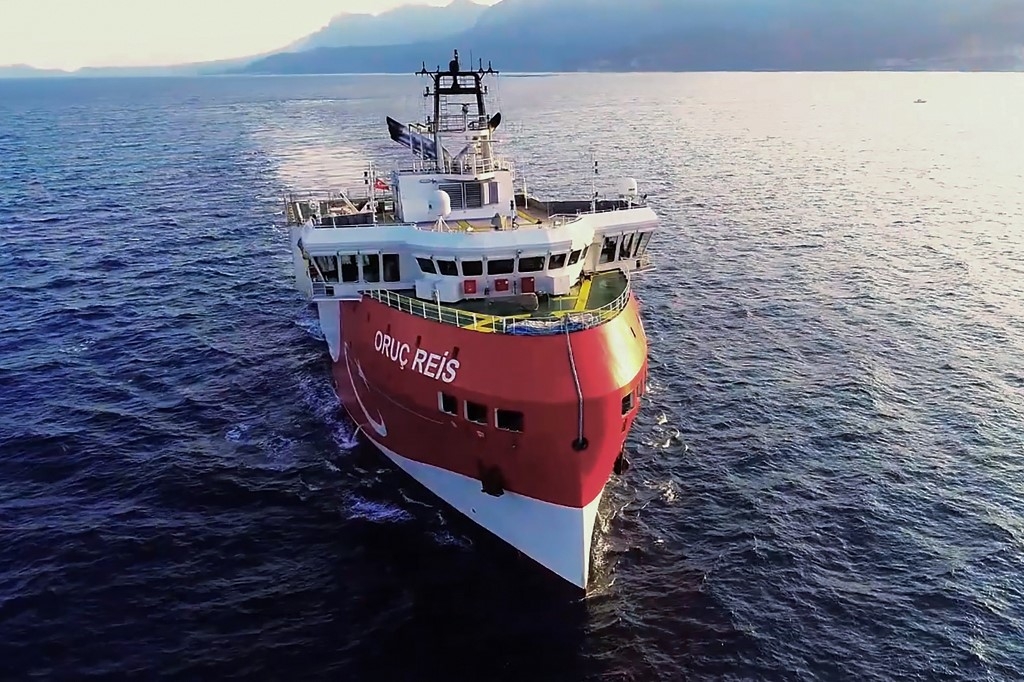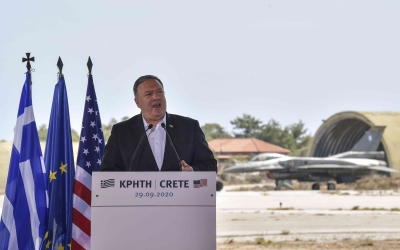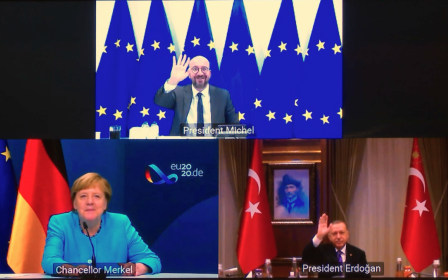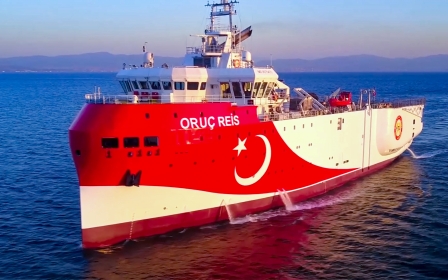US slams Turkey over renewed seismic surveys in Eastern Mediterranean

The United States said it "deplores" Turkey's decision to renew geological survey activity in areas in the Eastern Mediterranean that Greece claims are within its territorial waters.
In a statement on Tuesday, State Department spokesperson Morgan Ortagus called the move a "calculated provocation" set to inflame tensions within Nato, a position similarly shared by Germany's foreign minister.
New MEE newsletter: Jerusalem Dispatch
Sign up to get the latest insights and analysis on Israel-Palestine, alongside Turkey Unpacked and other MEE newsletters
"Turkey's announcement unilaterally raises tensions in the region and deliberately complicates the resumption of crucial exploratory talks between our NATO Allies Greece and Turkey," Ortagus said.
Both Turkey and Greece claim areas of the Eastern Mediterranean, where experts believe there are vast, untapped hydrocarbon resources.
"Coercion, threats, intimidation, and military activity will not resolve tensions in the Eastern Mediterranean," Ortagus continued, stressing the need to end attempts to survey the area and immediately begin exploratory talks with Greece.
"Unilateral actions cannot build trust and will not produce enduring solutions," Ortagus said.
The Turkish ship Oruc Reis set sail on Monday to carry out seismic surveys in the Eastern Mediterranean, prompting Greece to issue a furious new demand for European Union sanctions on Ankara in the row over offshore hydrocarbon exploration rights, Reuters reported.
Turkey had previously done so on 10 August, when it sent a research vessel accompanied by warships to disputed waters near a Greek island, extending the mission multiple times despite repeated calls from the EU and Greece to stop.
'Serious inconsistency'
A standoff over gas exploration in contested waters had seen the Nato neighbours stage rival war games and ramp up their rhetoric. But the tone had softened amid efforts to defuse tension, raising hopes for a diplomatic solution.
In a statement issued late on Tuesday, Turkish Foreign Ministry spokesman Hami Aksoy said since Washington had rejected the Seville Map, which represents Greece and the Greek Cypriot administration's claims in the Eastern Mediterranean, the US was displaying "serious inconsistency" with its latest comments.
"It is not Turkey that escalates tensions in the Aegean and the Mediterranean, but rather Greece and Greek Cyprus," Aksoy added.
Turkey and Greece had agreed to exploratory talks over disputed waters around the end of September, but Ankara's recent move has thrown a wrench in those plans.
Ankara has argued that it had the largest coastline of all the Eastern Mediterranean nations but a disproportionately small share of the sea because of Greece's far-flung islands - some of them within sight of Turkey's shore.
Meanwhile, Athens says its claims to territorial rights in the area are grounded in international law and past agreements signed by Ankara.
Middle East Eye delivers independent and unrivalled coverage and analysis of the Middle East, North Africa and beyond. To learn more about republishing this content and the associated fees, please fill out this form. More about MEE can be found here.






